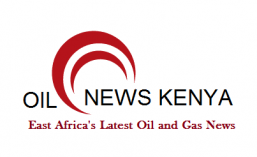African focussed support services and logistics company Africa Oilfield Logistics Ltd has announced its intention to dual list on the Growth Enterprise Market Segment (‘GEMS’) of the Nairobi Securities Exchange by way of an introduction and private placing of up to 10% of the Company’s enlarged share capital, such private placing being offered solely in Kenya.
Completion of the Kenyan Listing will make Africa Oilfield the first AIM listed company to join the Kenyan exchange and marks a further step in the Company’s development as it looks to expand its existing support services business in East Africa.
“Our proposed dual listing on the Nairobi Securities Exchange is a further exciting step forwards and one which will establish the Company as a pioneer in this area. We expect that by taking this opportunity we will further align the Company with the strong regional growth currently ongoing and demonstrate in a tangible way our commitment to operating in both Kenya and the East African region as a whole. We hope that shareholders will share this vision and support the resolutions being proposed at the meeting to be held on 5 November 2014, ” said Chief Executive Officer of Africa Oilfield Carl Esprey.
The company says a Circular has been sent to shareholders giving notice of a general meeting for the purpose of approving resolutions that will enable the Company to undertake the Kenyan Listing.
As set out in the Circular, the Company will be seeking shareholder approval to resolutions to give the directors authority to issue new shares and to disapply pre-emption rights, which when passed will enable the Company to issue new shares and thereby effect the Kenyan Listing.
Following completion of the dual listing, the Company’s ordinary shares will be fully transferrable between the AIM and GEMS markets with any funds raised pursuant to the proposed placing in Kenya being applied towards growth initiatives with the Company’s current financing requirements well covered following the successful £7 million financing completed in August 2014.
“Through our primary investment into Ardan Risk & Support Services, completion of which we expect to occur following the general meeting to be held on 22 October 2014, we have already built a strong presence within the support services and logistics sector, and are currently working for a number of international companies operating in the East African region,” Esprey concluded.
Follow @oilnewskenya